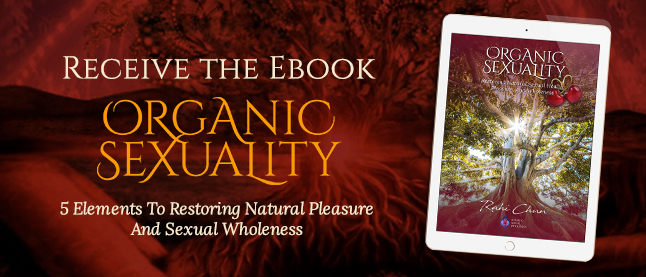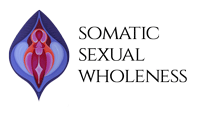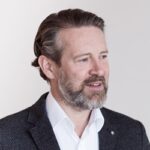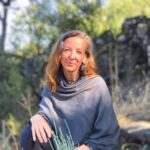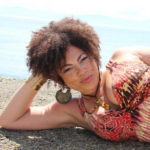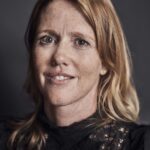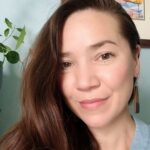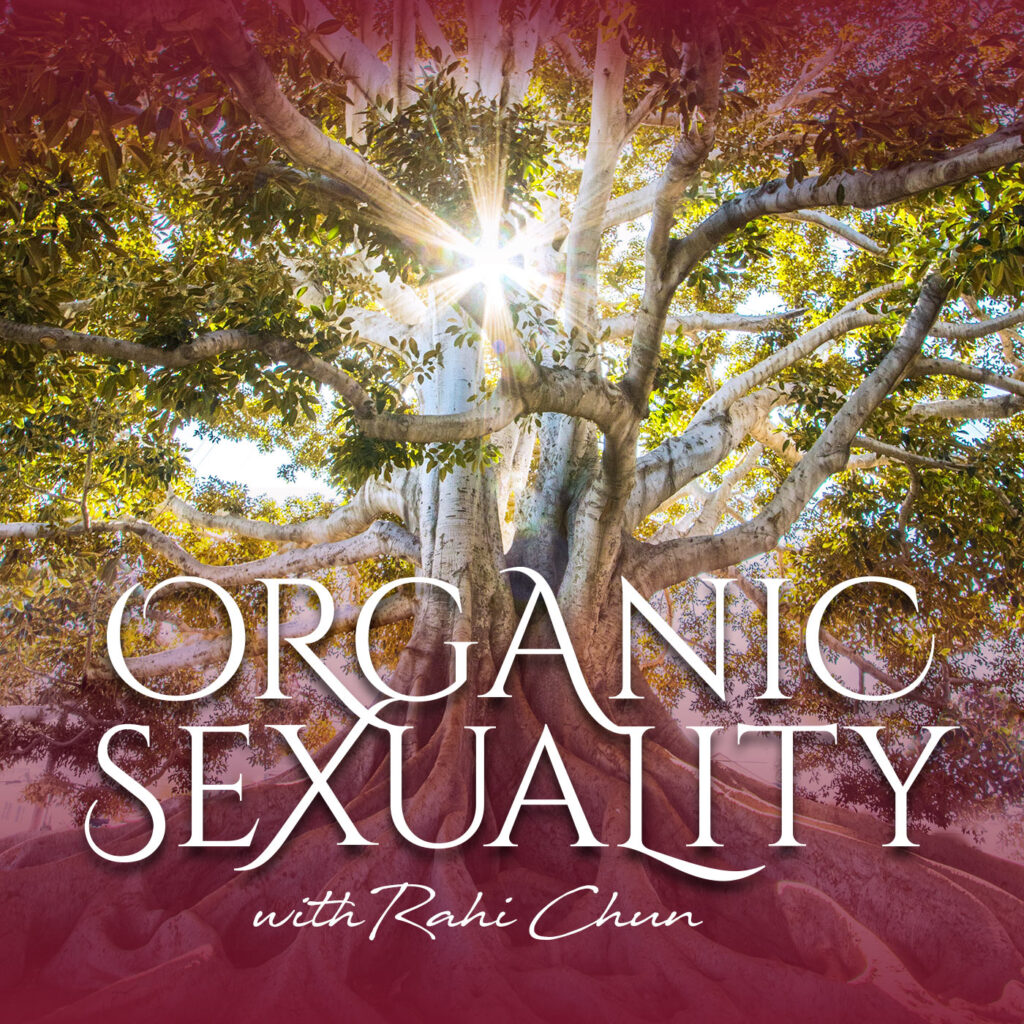
How Psychedelics Can Guide, Inform & Support Sexual Healing with Psychedelic Integration Specialist Salimeh Tabrizi
Share this episode:
I met Salimeh through a mutual friend, Ava Grace, in 2018 and was taken by her advocacy work in the plant medicine arena and her depth of knowledge and understanding of the role plant medicines can serve in healing, soul restoration, and sexual reclamation. I am grateful that we’ve kept in touch over the years, whether crossing paths at the Burning Man Festival or collaborating in service with shared clients. More recently, we’ve been exploring the possibilities of holding space for retreats in Costa Rica – exploring the intersection of sexual healing, whole body integration, plant medicines, the Earth, birth, and death.
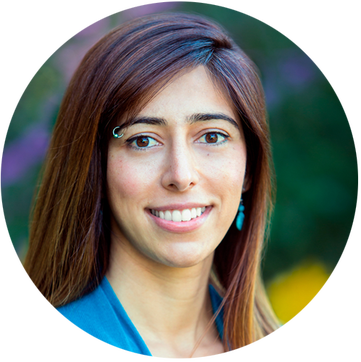
Salimeh Tabrizi, M.A is a clinical counselor, intuitive energy worker, and plant medicine facilitator, educator and advocate. She supports individuals before, during, and after sacred medicine journeys with Ayahuasca as they step into their soul path and mission. Salimeh is a founding board member of the Canadian Psychedelic Association and the founder and organizer of the Cannabis Hemp Conference and Expo, the largest plant medicine conference in Canada from 2015-2018. She is inspired by the co-evolutionary process between humans and entheogenic plants such as Ayahuasca, Cannabis, Psilocybin, Iboga and San Pedro.
She feels grateful to be part of the collective as humanity faces a pivotal point of ascension and has a chance and choice to remember, embody, and take inspired action from love and unity consciousness while anchoring responsibility for Earth-stewardship and protection.
With continuous alignment to Source energy and loving support, she feels that we all have the potential to be who we really are, remember why we came here and live loving, healthy, peaceful and joyous lives while helping to herald a new harmonious existence on the planet for all beings.
We explore:
How The Mother Plant, Ayahuasca, has the capacity to touch into deeply repressed emotions and previously unavailable memories, providing access to healing and an integration of the past with the present.
How the body, in its intelligence for survival, will keep memories too traumatic and overwhelming for the nervous system at bay, until there is enough resource and support for its integration and metabolization.
How plant medicines can provide a sense of being held – in order to be with one’s past traumatic experiences – to feel supported in addressing them from within the body.
How the integration space held after a plant journey can be amongst the most important aspects of the experience.
How the depth of trust felt with the practitioner holding space, and the spaciousness created for the integration of the plant’s wisdom – are key factors in the power and clarity of the journey.
How Mother Ayahuasca can be used therapeutically in concert with Gestalt and other practices to systematically clear issues from different chapters of one’s life.
How Santa Maria, also known as cannabis, can also be an ally in deepening embodiment when ingested in concert with somatic practices.
How the role of “set and setting” with plant medicines involves the integrity and experience of the space-holder as much as it does the safety of the environment, the potency of the medicine, and intentionality of the soul’s journey.
How each embodied soul’s realization and connection to our Universal Source is ultimately all that will matter as our environmental and societal structures continue to evolve.
How Somatic Sexual Healing is the next frontier of seismic change and the medicine needed for our society.
Rahi: Welcome to Organic Sexuality, where we explore the restoration of pleasure, the reclamation of sexual sovereignty, and the realization of our embodied sexual nature. An invitation to honor the pleasures of your body by embodying the pleasures of your nature. I'm your host, Rahi Chun. I'm a certified somatic sex educator, a sexological bodyworker and creator of Somatic Sexual Wholeness. Before today's interview, an announcement that registration for the online course. The three keys to genital disarming for reclaiming and expanding pleasure is now open. Early bird pricing is available between now and August 20th when full access to all course materials becomes available weekly Zoom group learning calls begin September 20th when registration closes. For more information, please go to somatic sexual wholeness.my kajabi.com. Today we invite Salimeh Tabrizi to the podcast. Salme has been a devoted space holder, facilitator and integration specialist of plant medicines, as well as an effective ally in creating systemic changes in policy, a awareness and education about the benefits of the intentional use of psychedelic medicines. How can our conscious, intentional, and reverent meeting with the wisdom of plant medicines support inhabiting the truest and fullest access to our whole body and psyche, as well as our life force?
Rahi: Are there plant medicines that can aid in the healing and metabolizing of past sexual traumas? And if so, how? What does the Earth have to tell us, teach us, and show us about ourselves as stewards of this land? Please be advised that plant medicines were administered traditionally in sacred ceremonies with the deepest reverence for its wisdom, guidance, and healing properties. Please do your due diligence in research and consultation with experienced and trained professionals such as Salimeh if considering whether you are a good candidate for such an experience.
Rahi: I am really thrilled to be inviting Salimeh Tabrizi to the podcast today. I've known Salimeh for a number of years now, and it's always a joy to connect with her. So a little bit about Salme. Uh, she is a clinical counselor with a Master's degree in counseling psychology from the University of British Columbia. Uh, she's also a certified Hypnotherapist Matrix energetic guide and significant to our talk today, a plant medicine integration therapist. Um, and we'll get into her role as a political advocate, an educational ally, and so much more in regards to plant medicines. She supports both individuals and couples foster greater self-love reclamation of empowered embodiment, removing blocks to sharing and receiving love, and manifesting abundance in all areas of their lives. Um, you can read more, you can discover more about her at her site, vibrant life counseling.com. Now, she's also a founding member of the Psychedelic Association of Canada, which was founded in 2019, opening access to psychedelics for all Canadians as a human right.
Rahi: Since its inception just a few years ago, they've already successfully worked with Health Canada and representatives from all political parties to support access to psilocybin at end of life and achieve special access program status. Uh, they've also impacted legislation for the legalization of psilocybin and psilocybin mushrooms, and commissioned a 2021 Nanos poll, finding that 78% of Canadians supports psilocybin to treat end of life patients, and more about the psychedelic Association of canada@psychedelicassociation.net. Uh, as I mentioned, she's been a powerful political advocate and educational ally speaking on countless panels, conferences, and interviews for the accessibility of plant medicines for healing, spiritual embodiment and empowerment. Now, I wanted to, uh, host Salimeh of the podcast to invite an exploration of how psychedelics when brought into the healing journey with intentionality and consciousness can support sexual embodiment and the sexual healing journey. Salimeh, thank you so much for joining us today. It's great to see you.
Salimeh: Thank you so much for the warm welcome and the great intro. Appreciate it a as always, great to be in your company.
Rahi: Oh, wonderful. So, um, Sally Mai, you know, I usually start off by asking, uh, guest to the podcast about their own journey of sexual embodiment and empowerment. And I would love to, I would love our audiences to know a little bit more about the role that psychedelics has played in supporting your journey and reclamation, um, as a way for listeners to get an insight about the power of plant medicines and, and psychedelic aids.
Salimeh: Yeah, absolutely. So I'll go back to thousand and 13. Um, in February, 2013, it was the first time that I connected with Ayahuasca, and I always say that the Salimeh prior to Ayahuasca and Salimeh after Ayahuasca is a very different being. Um, that emerged. And I, you know, I, in, uh, 2012, I was working as a interim therapist at Family Services. I was going through a lot of very difficult cases, um, anything from bereavement, anxiety, depression, addiction, to, um, also, you know, gang violence, domestic violence, sexual trauma. And as a novice therapist, I realized that I, I was hitting walls and my clients were hitting walls, um, just in the, in the container of talk therapy. And I know many of the listeners can resonate with that. And so, as an empath, not knowing that I was picking up a lot of energy, I, um, unfortunately started having autoimmune issues.
Salimeh: And so that was a catalyst that opened me up to all kinds of different energetical modalities and alternative ways of healing. So anything from reiki to acupuncture to hypnotherapy. And eventually I came across the article on Ayahuasca, and within two months, I was down in Mexico sitting with the Peruvian shaman mm-hmm.
Salimeh: And so, um, that was the first safety opening. And then after that, in November, 2013, I connected with my mentor, who I worked with for eight, for eight years. And within the safety of the first retreat with him, which was 30 days long, 13 people, we didn't leave the room. We didn't leave the house. This was at, at Lake Alan. Yeah. Very, very deep work. Um, I discovered my, um, the memories of my sexual trauma at the age of five. Wow. Yes. And you know, when I work with my clients now, and some of them might have a bit of a, and I'm sure you, you Mm. Based on the thousands of people that you worked with, when there's a bit of a kind of feeling of mm-hmm.
Rahi: Mm-hmm.
Salimeh:
Rahi:
Salimeh: Yeah. Great question. And I do feel, to your point, that a lot of individuals are being supported to look at, um, this very deep trauma. I think the sexual trauma is something that is, of course, they say in research that neglect and abandonment, um, are, are the worst, you know, um, kind of foundational pieces of trauma mm-hmm.
Rahi: Yes, yes, yes. Mm-hmm.
Salimeh:
Rahi: Yeah. You know, there's so many important, um, themes you're touching on, um, the fact that the holding that you experience with, with, with Mother Ayahuasca, when we are held, um, in your experience with, at the Ayahuasca, uh, energy and, and life force, uh, or when we're, when we're feeling supported and resourced is, is when the trauma, uh, feels safe enough to come forward. When we're, when we don't have that kind of support, whether in a relationship or with a counselor or in other ways, then, uh, our, somewhere in our psyche knows that it's gonna be too overwhelming to, to deal with. So that holding that you experience is really, really significant. And I totally resonate with that. I feel like, you know, the ayahuasca journeys that I've done, you know, I just feel like the plant medicine is still in me, and, you know, this is years and years later. Um, and that support is still there. But the other point that I wanna touch upon is this is the significance of the role integration plays, because as you said, the, the first event opened the gates, but it was really in the integration that you felt safe enough for all of these memories to come forward. Can you speak a little bit about your integration process as well as the integration space that you hold for clients?
Salimeh: Again, wonderful question. Um, you know, I, I kind of laugh because, um, my journey with Ayahuasca started 10 years ago, and at that time, I felt like it was a sledgehammer. You know, I did not have a really strong background in, in Somatics, for example. Um, you know, in my, in my master's, um, we talked about the window of tolerance. We did talk about not, like you're saying, overwhelming the system or flooding the system, yet with Ayahuasca, I felt like that was not an option. It was so intense at that time, and my nervous system just got, uh, so blasted, and I didn't really have the clarity of deta or what preparation could be prior to going into ia. Mm-hmm. Now, 10 years later, I feel that we are so much more trauma informed mm-hmm. So much more equipped mm-hmm. In, um, not blasting individuals. And that's, that is the angle that I come with, with my clients, is that we can be gentle, we can be, um, uh, efficient mm-hmm.
Rahi: Mm.
Salimeh: Right? Mm-hmm.
Rahi: Mm-hmm.
Salimeh: So the moment where they felt that, like, that they're not supported
Rahi: Mm-hmm.
Salimeh: Exactly. Exactly. Because I felt that for me in my, in my therapy journey is that I, I'm not a fan of prolonged therapy, actually. Mm-hmm.
Rahi: Sure, sure, sure. Because there no, they know there's a container for that, and so it encourages the material to come forward. Um, Sally Mae, I wanna come back to your, your integration because, um, you know, you had shared that that's really when the memories came forward. Um, what do you think it was about, uh, working with your, with your teacher and master and that integration period for you that, like, what were looking back now, what were the elements of that integration container that allowed the safety of all of these memories to integrate and metabolize and come through?
Salimeh: Yes. So one, I believe it was his own self-work and his depth, because I, um, I'm very particular, and I'm sure many people on the call can also resonate with, I'm very particular on who I work with mm-hmm.
Salimeh: Mm-hmm. And so, a number one, it was his own presence and his own work. Um, second, I would say that it was, uh, spaciousness. I was, I was at the end of my master's program. I was in San Francisco after that. Um, after that 30 day retreat in Guatemala, I actually came back and I was in a very dissociative and kind of in a psychosis, actually. Mm-hmm.
Salimeh: So not only was I connecting in with my, my mentor and sharing with him, um, I had, I had an amazing partner at that time who's also holding space. I, um, stepped away from my master's from some time mm-hmm.
Rahi: Yeah. You're, you're touching on really important themes again. So it sounds like the, the depth of work of your master was a key, this spaciousness that allowed for all of this material to come up, and the flexibility you had. Well, the, the wisdom you had to take a pause with your masters and not get distracted to spend time in nature to receive the support of your partner. Like, all of those things played a role. And at the same time, it sounds like mean not to underestimate the well of material that came up for you, you know, that you went into psychosis, you know, in the months following, because it is so huge to address that, um, break from, from, from our core. Thank goodness that you had the wherewithal to know how to reach out and to support yourself during that period. And I'm sure, um, it's just, I mean, it sounds like it's informed the way you're holding space for people's integration now.
Salimeh: Ab Absolutely. Yeah. And I will add to that as well, um, dear Iraqi, that it was not, um, it was definitely not A to B, and it got very messy at times. And so I always tell individuals like, what you're actually doing need to really look at it from, from a very deep compassionate, um, inquiry and, and space because, um, I bring a lot of the feminine energy. And my, my teacher, he, he would not call himself a master, and I just like laugh because you, you know, he, he definitely had, um, incredible presence, but he, he was very much about not being, not having gurus or not having any kind of, like, he really instilled that self responsibility and self-empowerment in, in the people that he was working with mm-hmm.
Rahi: Mm-hmm.
Salimeh:
Rahi: Yeah. Yeah. I, I love that. Um, I mean, I, I love that you're sharing that, that it can be messy. I think it, it almost needs to have space to be messy, you know, because it's really, we're really coming out of our kind of rational mind in order to address the unknown and what's been often buried for decades. Um, and it really relies on a surrender of trust, not only to the guidance and wisdom of the plant medicine, but really your own higher consciousness to know and guide this healing journey. You know, you mentioned a, a, a moment ago, um, how part of your integration, uh, involved L S D and returning to Ayahuasca. Um, I'm wondering, Salme if you can illuminate for us what, what you notice as being particular, what, which medicines that you notice being particularly helpful and supportive in addressing, you know, what kinds of, of issues of embodiment or being disconnected from the body. Um, you know, I mentioned to you that one of my teachers recommends using 0.5 to 0.8 of psilocybin for clients who are, have a lot of mental engagement during sessions, that it really lowers the volume where there's just an enhancement and presence in embodied sensations for our audience members. What, what have you recognized which medicines for what issues and, and how?
Salimeh: Yeah, great question. Um, again, and now when I work with clients, uh, right away, when we start the, when we open up the sacred container, um, if they're not already working with psilocybin, um, that's definitely the first point of entry that I, that I welcome them to step into. And so very small, uh, microdose. Um, and as we start talking about their family of origin, just as you do with clients, um, and start to excavate the layers of blocks of where they're not really feeling themselves and where they're leaving themselves, and, um, what happened in those early years in vitro and up to age five, um, the psilocybin really calms their nervous system. And like you said, just, you know, just, um, takes the mental, just calms the mind, quiets the mind. And what I notice is that they start to have that feeling of holding for themselves, and insights just naturally start to happen.
Salimeh: Mm-hmm.
Salimeh: Wow. And so every cup almost is, every is a chapter. So maybe the first cup is about something that happened maybe with their mother or father, and they never got to speak it. Maybe there's a forgiveness piece, maybe there's anger mm-hmm.
Rahi: Yes. Yeah. That's incredible. Salame the intentionality with every cup, you know, and using Gestalt or other somatic, uh, you know, embodiment practices to really get at what the medicine knows is there, you know, it's like you're working in concert with the medicine. Right. Um, to therapeutically support this purging of, of what's done. That's incredible. And then, you know, there, there are a lot of medicines that I, I haven't, uh, experienced, you know, like sassafras and some Pedro and p I mean, there's so many. Have you noticed when it comes to embodiment and, and I'll say embodiment in general, because that encompasses sexual embodiment when you're guiding people to return to their bodies, um, are there other medicines that you feel like are particularly helpful in that journey?
Salimeh: Yes. Yes. Definitely. Yeah. Thanks for, um, bringing us back to that piece, because for me, right now, psilocybin and IA are the main ones that I work with. However, I have immense amount of respect for cannabis. Mm-hmm.
Salimeh:
Rahi: Mm-hmm.
Salimeh: Mm-hmm.
Rahi: Yeah. Yeah. Um, I can relate to that. And I, I can attest that that is a challenge for a lot of clients when they're on the table, is that, is whether it's hypervigilance or, uh, because they've been rewarded by, you know, the group been rewarded professionally by being super analytical or whatever it is, or, you know, they're just, um, uh, uh, not feeling at home yet in their bodies. Um, there is a lot of, uh, mental activity. I think that's the culture we live in, uh, a reflection of that. And I, Santa Maria, uh, can really, really aid in that. You know, it's interesting you say that, Salme, because, um, I recently interviewed a, a friend who's a leader in, you know, I guess the world, but particularly in Europe, around, uh, supporting people to get really in touch and, and inhabit their cervixes. And she also shared that cannabis was the medicine that taught her so much about to about how, um, to develop this.
Rahi: It it's almost like the, the Santa Maria guided her to the teachings. She is now teaching others around how to de Armour the cervix and to, um, develop an intimate connection with the cervix and heart. So, you know, already in our dialogue, I think, I think listeners can pick up the important role of set and setting. And I just want to touch upon this because I don't want listeners to think, oh, they can just go out and
Salimeh: Yes, absolutely. And I'll share a little bit with the listeners around my experience with you and how, um, how potent that was on, on my journey of sexual empowerment and embodiment, because, um, as I shared with you, I, I needed several years to even be ready for the, for the sexual work. And so I, you know, it was again, through a wonderful dear friend of mine who I was assisting actually in their ceremonies in California, and she had worked with you and she recommended, so it was, again, through the guidance of, um, the medicine through another friend that I got, um, connected to you. And at that time, I knew that I had anxiety in still in my body, but, and I knew that some of the signs of, um, like the, the symptom, I say the symptoms, you know, but just some of the residue of mm-hmm.
Salimeh:
Salimeh:
Salimeh: Uh, is my own life cleaned up? And so for that transmission to happen, so I take this very seriously, and, uh, of course I'm still learning. Um, but I had never felt trusting to let anyone come near me. And in our work, I didn't even know if it was gonna be possible. But there was an essence, like you said, the trust and surrender. Um, and that like internal will that had been turned on for me through the work with Ayahuasca. And I was like, okay, no, this is a yes. And so there's like the layers and layers that took place in, in our c what I call it was a ceremony. Our work was nothing short than an ayahuasca ceremony for me. You know, it was seven hours long. And it, um, you know, we did primal screen together in your LA home and mm-hmm.
Rahi: Mm. Oh, well, thank you for reflecting all of that back. Um, yeah, that really does underscore how the facilitator or the space holder or the integration specialist is an integral part of that set and setting. And to your point, all of the experiences and intentionality and wisdom that they bring and the reverence for the process, for the healing process and the medicine, that's all part of the set and setting, um, and impacts the experience and how the medicine d you know, d uh, meets us. Um, oh, I'm, I'm touched by all of your reflections, Salme. Thank you. Um, yeah,
Salimeh: Of course.
Rahi: So, you know, you're, your, um, I, I'd love to speak to what, what sounds like, uh, the journey that you've been on around non-duality and, um, really about consciousness. I mean, I feel like what the medicines invite in us is a reconnection with universal consciousness. And for me, I think part of that reconnection and embodiment of our, you know, recognition of our universal consciousness involves our sexual life force energy. Can you speak to how your journey and how your involvement with psychedelics has led to awarenesses around the truth of non non-dual of, of our non-dual kind of existence and the spiritual journey that this invites for, for clients or for, for, for anyone open?
Salimeh: Yeah, absolutely. Um, I feel that for me, from the very beginning, um, this was, this was a path towards awakening and a really deep commitment came along with that. Like you were saying, a reverence came along with that. And my experiences, and I think everyone is perfect on the path that they're on. And whether it's healing the body or going through illness or wanting to have more intimacy or just, um, mental health, like clearing mental health, um, issues, whatever it is, I feel like we're perfect on the path. And some of us are called to a, you know, a different kind of inquiry mm-hmm.
Salimeh: You know, I, I love my, um, the book. Um, I am that mm-hmm.
Salimeh: Mm. And so in that space of connecting to death is like the closest point of surrender to God. Cause you're letting go of this body and this and this paradigm of mm-hmm.
Salimeh:
Rahi: Yeah. Yeah. I love the reference point. I'll just say the reference of our existence that you continually come back to. I mean, that's what's amazing to me about my psilocybin experiences is the very visceral, real awarenesses of that, of the non-dual state that is our existence. And that is the truth of our nature. It stays with me and I continue to be re reminded of it and I can continue to reference it. Um, you know, it's not like an experience that's just, you know, come and gone, but it still lives, lives in my consciousness. And, you know, I would like to think in my, in my somatic awareness, I really resonate with what you're sharing and really, um, you know, have reverence for the way you've experienced it and can articulate it. Cuz it's almost like trying to articulate the, the, the indescribable
Rahi: Um, yeah. And listeners, you know, who have experienced that will, will understand that reference point as well, you know, to understand how accessible these states are with the aid of these medicines. It's kind of mind blowing to me. And I know that's, you've been at the forefront of making it accessible, you know, whether it was Santa Maria years ago or psilocybin now, or, you know, really all psychedelics. Um, uh, I I I feel remiss if I didn't ask you, because I know you've been at the forefront of political advocacy and education around making all of these plant medicines available. I, I kind of think it's inevitable that like, I mean, all the data that's coming out by medical institutions and I feel like it's kind of entered mainstream consciousness. I'm seeing like movies and TV shows making reference to, you know, magic mushrooms and so forth. I kind of feel like therapy and counseling, like I said, inevitable that it's, the benefits are just going to be, become known and mainstream, uh, knowledge for everyone. Is that how you see it? Or do you see other kind of obstacles politically and so forth?
Salimeh: Yeah, for me right now, there's so much trust and surrender in life that I really feel that really whatever is happening is perfect. That's a, that's a, you know, interesting place to sit with because I'm not blind to the, the hardships and the challenges that humanity is facing. And yet I do feel that, um, and I'm only, as one of my ayahuasca journey showed me I'm just an ant. You know, we're all little ants, um, work, but ants are strong. Yeah. You know, we, we can work together. And, um, and so in this process of coming into unity, consciousness, cleansing our own fears, beliefs, desires, and, um, you know, as my mentor would very much frame it this way as, um, as traumas that we need to release then, and I feel more of our own light can come through and through this reflection of light, again, a new paradigm or a new existence can, can come through, but it really rests on, it comes back into self responsibility mm-hmm.
Salimeh:
Salimeh:
Salimeh: And, um, and in that, in that journey, I got three pieces of guidance. One that enlightened is survival and survival is enlightenment. And my sense is that in order for us to really, um, continue to live and be able to be in harmony with ourselves each other and the planet and our surroundings, there has to be a new level of awakening. There has to come through. Um, the second piece was that there will be a time where it won't even matter what car we drive, where, what, how much money we're making. All of that status is gonna just dissolve. Cause the only thing that's gonna keep us anchored is our connection to God, spirit, love, whatever you wanna call it. And that the third piece is that we can be pulled into fear and that will actually, you know, probably take us out. You know, whether, and again, we're, we're immortal in the sense of like being energy mm-hmm.
Salimeh:
Rahi: Yeah. Well, you know, what's coming up for me as you share this is the way you hold space for your clients in encouraging the self responsibility. You know, like you are part of the set and setting and you're really empowering clients through the medicines to do their own work, to find their own answers, to, um, really be embodied in their own resource. And, you know, I think that is the best preparation for what is to come, you know, as you said, like all of these kind of external kind of material structures are going to fall. You know, they're gonna fall away. It's not sustainable. You know, like our planet's not sustainable, you know, I mean, in America we have so many, you know, the healthcare system's not sustainable. There's so many things that are not sustainable. And the only thing that is a sustainable is our own resource and connection to our source.
Rahi: You know? And so, you know, it makes sense to me that that is how you are holding space for your clients. Um, because whatever the timeline is, that's, that's the only, that's the most important thing that's gonna matter. And those of us who are on the planet at this critical juncture, you know, I believe in some way chose to be here at this critical juncture. And so that is the invitation for us here. Now we came here at this pivotal juncture to make certain choices to be of service in certain ways and to align with certain tru universal truths. And so I think it's a very individual practice of discernment moment, up to moment, uh, of looking at the identities we've constructed to get our needs met, you know, in whatever societal structure and how, how we can let go, how we need to let go of those identities because they're not gonna matter at a certain point. And what's really gonna matter is all that's gonna matter. And you know, what I love about plant medicines and psychedelics is it really teaches us that in a very visceral, real, um, awakened way. And I'm always curious of how I can support clients, uh, in, you know, ways that really resonate with their truth. And, and that's why I am just fascinated by, um, all of the, the potential benefits and synergistic alignments that psychedelics can bring to somatic sex, sexual embodiment and education.
Salimeh: Yeah. Beautifully said. Absolutely. And I feel that I thank you. And I feel that the next wave of the healing that's going to come, because, you know, cannabis was the first wave and it really allowed for support and, um, a new kind of discussion and engagement with health and, um, wellbeing and understanding our body. Um, and it shattered kind of the medical system in, in some ways mm-hmm.
Salimeh: Mm-hmm.
Rahi: Yes, yes. Yes. That's, uh, a call to everyone listening to bring these conversations to your families and to the dinner table tonight. How is your sexual frequency mother and father and sister and brother, and Yeah. Um, let's do that today. Let's do that as a collective audience. Um, but it's so true. It's so, so true. I feel like our sexual life force is our life force, you know, that's why I really resonate with, with Taoist teachings that don't even distinguish sexual energy from life force energy. It's our vibrancy and it speaks to our frequency, you know, our intuition, our creativity, our inner knowing salme, I feel like there's, there, there are more, more tangents we can start to, to ride the waves on. But, um, I, at this juncture, I'm gonna thank you for being who you are for holding such an incredible space. Um, not only for your clients and for your communities and tribes, but really for education awareness and for accessibility, you know, to these psychedelics and plant medicines. I know it's been a passion and a purpose for you for, for a long time. And, um, you know, p I mean, end of life, psilocybin accessibility. Wow. That's just an incredible, the new neural pathways that are available at that juncture when people need it, it's like, wow. I mean, the work you do is incredible and the way the light comes through you is incredible. And I just really bow to you and thank you so much for being here
Salimeh: Right back at you. Right. Thank you so much. Deep bow to you too. You know, when I came and had the two ceremonies with you, I'll never forget I went back to Vancouver and every single one of my friends were like, what is so different about you? You are so vibrant, you're so, you're shining, you're glowing. And I went to each one of them and I was like, you won't believe what I did. And you know, for me it was an incredible act of courage. And so thank you so much for, you know, your space holding and the, you know, it's nothing short of of alchemy that happens in, you know, in your curation and as you're teaching others. And as we're learning more and more, um, in this regard, I, I look forward to having Yeah. Um, more times of connection and discussion. Thank you for your just devotion.
Salimeh: I keep saying that, but your commitment and your devotion to the path and yeah. We're all in this together. So it's, um, it's an exciting time, it's a blessed time and I'm so, so grateful for the medicines and really will do Yeah. What I can to, to decrease the suffering mm-hmm.
Rahi: Yes, yes. Holding that
Salimeh: Strong.
Rahi: So for our listeners, I will have Sally Mae's website link vibrant life counseling.com as well as the psychedelic association.net for people to learn more. And, um, Sally Mae, I look forward to seeing you in Costa Rica.
Salimeh: Absolutely. Can't wait. Rahi. Have a great rest of your day.
Rahi: Since this interview was recorded,
Rahi: A seven day retreat to be held in Costa Rica exploring the intersection of sexual healing plant medicines and echo sexuality is being organized and co-created. Between myself, Sali, may, Suzanne, Russ, guard, creator of the Gaia method and somatic sexologist, Dr. Jennifer Lang, holistic gynecologist and maps, psychedelic integration specialist and Kate Pearl bodywork, intuitive and psychedelics researcher. If you have experience in either holding space for plant medicine journeys and or sexological body work and are interested in participating, please email me at rahi somatic sexual wholeness.com or visit somatic sexual wholeness.my kajabi.com/ Costa Rica. Links to salme site vibrant life counseling.com to the Psychedelic Association of Canada and to our sexual Healing with Mother Earth Retreat in Costa Rica are all in the show notes. Until next time, take good care.
Get Podcast Updates
Enter your name and email address below to receive insights behind each Organic Sexuality Podcast episode and the ebook Organic Sexuality, 5 Elements to Restoring Natural Pleasure And Sexual Wholeness
Featured Episodes
With some of the wisest Somatic Sexologists in the Field.
Dr. Aline LaPierre
Mike Lousada
Susanne Roursgaard
Devi Ward Erickson
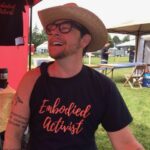
Dr. Liam Snowdon
Kimberly Ann Johnson
Dr. Ellen Heed
Keli Garza
Kris Gonzalez, L.Ac.
"Coocky" Tassanee Boonsom
Dr. Betty Martin
About the Show
We explore the restoration of pleasure, the reclamation of sexual sovereignty, and the realization of our organic sexual wholeness. We engage with leading somatic therapists, sexologists & sexological bodyworkers, and holistic practitioners worldwide who provide practical wisdom from hands-on experiences of working with clients and their embodied sexuality. We invite a deep listening to the organic nature of the body, its sexual essence, and the bounty of wisdom embodied in its life force.
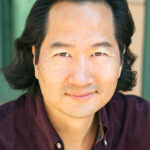
Rahi Chun
Creator: Somatic Sexual Wholeness
Rahi is fascinated by the intersection of sexuality, psychology, spirituality and their authentic embodiment. Based in Los Angeles, he is an avid traveler and loves exploring cultures, practices of embodiment, and healing modalities around the world.
